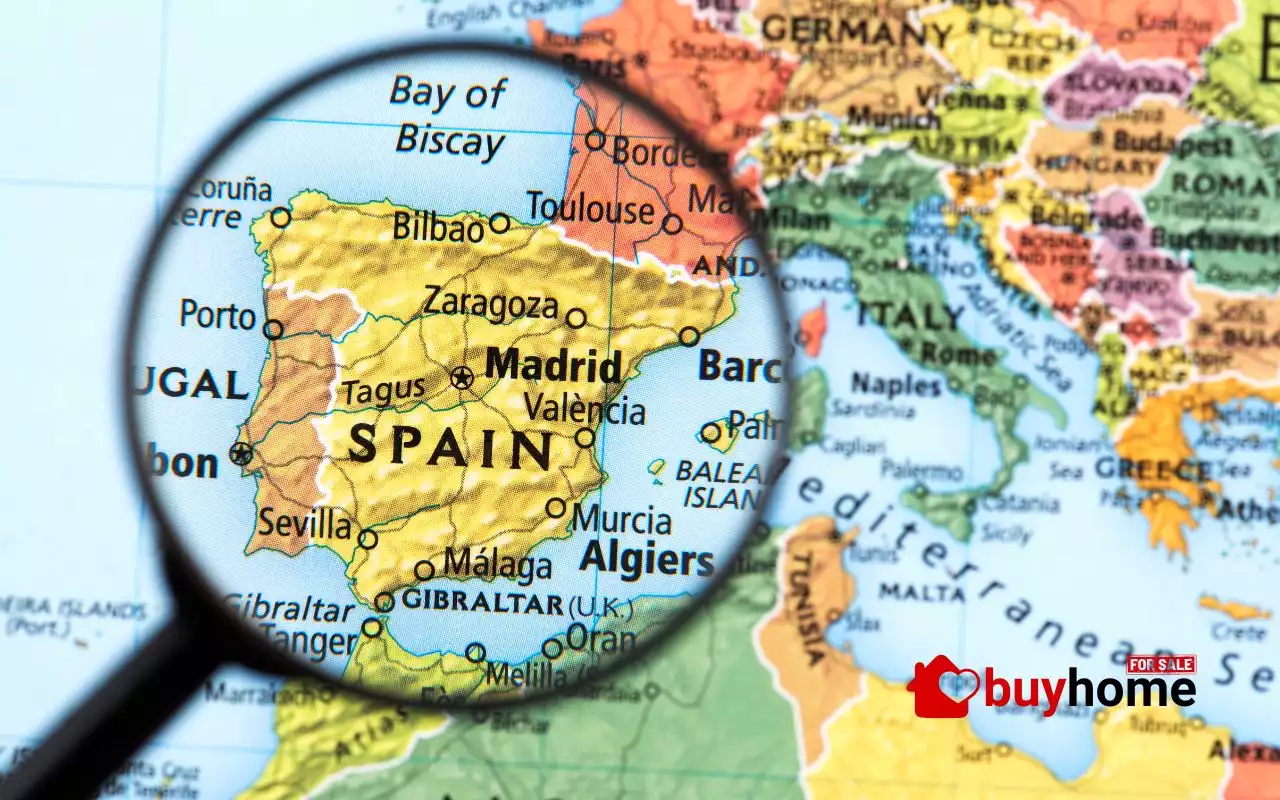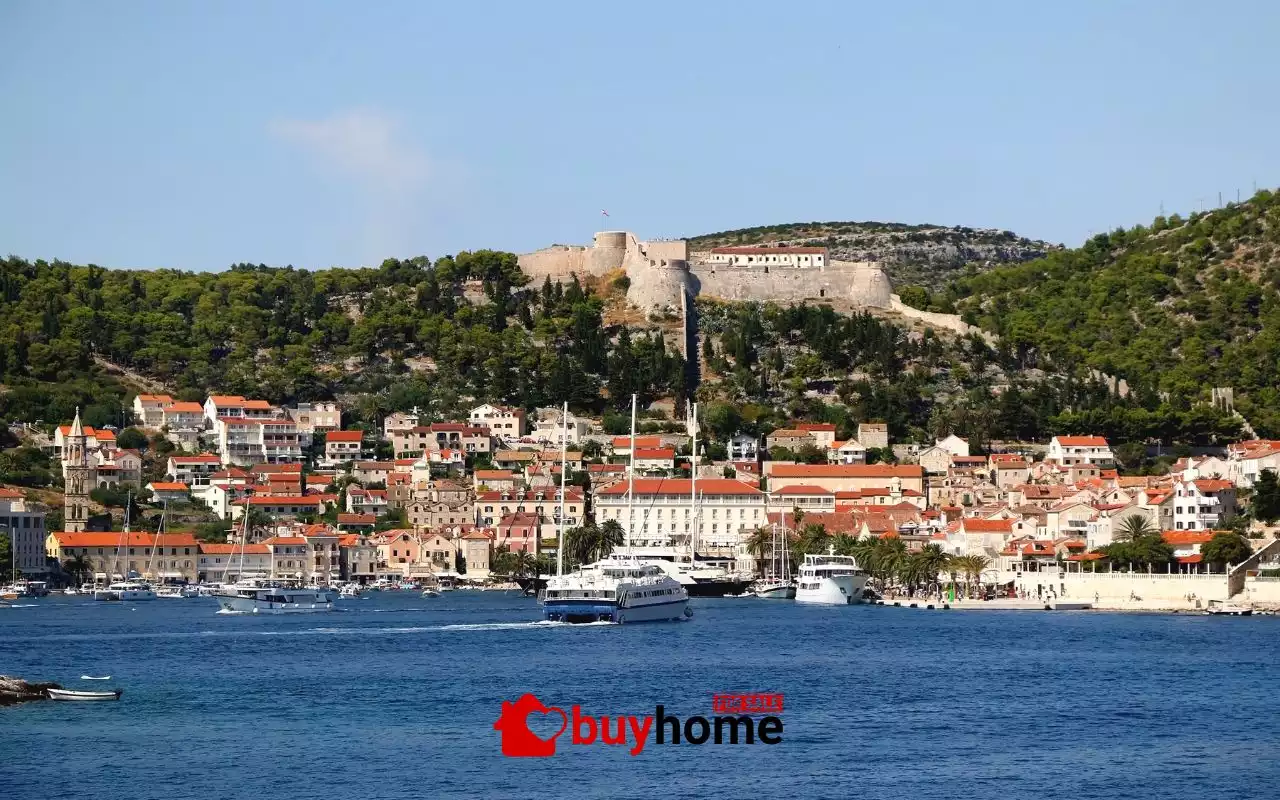Table of Contents
Spain, a country rich in history, culture, and stunning landscapes, is one of Europe’s most sought-after destinations for travelers, expats, and investors alike. Strategically located in southwestern Europe, Spain combines its vibrant urban centers with serene coastal regions, offering a lifestyle and economic opportunities that attract millions. In this article, we’ll explore Spain’s geographical significance and its socio-economic status, highlighting what makes this country a global favorite.
Where is Spain?
Spain is located on the Iberian Peninsula in southwestern Europe, sharing borders with Portugal to the west, France and Andorra to the northeast, and the Mediterranean Sea to the south and east. It also includes the Balearic Islands in the Mediterranean, the Canary Islands in the Atlantic Ocean, and two autonomous cities, Ceuta and Melilla, in North Africa.
Key Geographical Facts:
- Capital City: Madrid, located in the heart of the country, is the political and cultural hub of Spain.
- Coastline: Spain boasts over 4,900 kilometers of coastline along the Mediterranean Sea and the Atlantic Ocean.
- Mountains: The Pyrenees in the north and the Sierra Nevada in the south define Spain’s diverse terrain.
Population:
Spain has a population of approximately 47 million, with a mix of urban and rural communities. Major cities like Barcelona, Valencia, Seville, and Malaga are known for their cultural and economic significance.
Government:
Spain is a parliamentary constitutional monarchy. It is divided into 17 autonomous communities, each with its own level of self-governance, reflecting the country’s diverse cultural and linguistic heritage.
The Socio-Economic Status of Spain
Spain has the fourth-largest economy in the European Union, driven by a mix of traditional industries and modern innovation. Despite challenges, the country remains a global leader in tourism, agriculture, and renewable energy.
1. Key Economic Sectors:
Tourism:
Tourism is a cornerstone of Spain’s economy, attracting over 80 million visitors annually, making it one of the most visited countries in the world.
- Top Destinations:
- Barcelona: Known for its architecture and Mediterranean vibe.
- Madrid: Home to world-famous museums and a vibrant nightlife.
- Costa del Sol: A coastal paradise known for its luxury resorts and sunny beaches.
- Seville: A city rich in Andalusian culture and history.
Spain’s blend of historical landmarks, vibrant festivals, and natural beauty ensures its enduring appeal.
Real Estate and Construction:
Spain’s real estate market is thriving, with increasing demand for homes for sale in Spain from both domestic and international buyers.
- Coastal areas like Costa Blanca and Costa del Sol are especially popular among retirees and expats.
- Urban centers such as Madrid and Barcelona offer lucrative investment opportunities in apartments and commercial properties.
Agriculture:
Spain is one of the largest agricultural producers in Europe, known for its olive oil, wine, citrus fruits, and vegetables.
- The country is the world’s leading producer of olive oil and one of the top exporters of wine.
Renewable Energy:
Spain is a pioneer in renewable energy, particularly in solar and wind power. Its commitment to sustainability has positioned it as a global leader in green technology.
2. Social Development and Quality of Life
Spain is known for its high quality of life, combining modern infrastructure with a laid-back lifestyle.
Education:
Spain has a strong education system, with world-renowned universities such as Universidad de Barcelona and Universidad Autónoma de Madrid.
- International schools are prevalent, catering to the large expat community.
Healthcare:
Spain’s healthcare system is consistently ranked among the best in the world.
- Both public and private healthcare options provide high-quality services.
- Medical tourism is growing, with people seeking affordable yet excellent treatments.
Culture and Lifestyle:
- Spain is famous for its rich cultural heritage, including Flamenco music, bullfighting, and traditional festivals like La Tomatina and Running of the Bulls.
- Its Mediterranean diet, known for its health benefits, is a UNESCO-recognized cultural treasure.
3. Challenges and Opportunities
Challenges:
- Economic Recovery: Spain faced significant challenges during the financial crisis of 2008, and while recovery has been strong, unemployment remains a concern.
- Aging Population: Like many European nations, Spain is experiencing demographic shifts with an aging population.
Opportunities:
- Tourism Growth: The ongoing demand for unique travel experiences provides opportunities for tourism-related businesses.
- Real Estate Investment: The demand for homes for sale in Spain, particularly in coastal and urban areas, continues to rise.
- Green Technology: Spain’s focus on renewable energy creates opportunities for innovation and investment.
Why Invest in Spain?
Spain offers a wealth of opportunities for investors, homeowners, and expats:
- Real Estate Potential: From luxury villas to urban apartments, Spain’s property market is ideal for those seeking homes for sale in Spain.
- Golden Visa Program: Investing in real estate above a certain value can grant residency, offering added benefits for international buyers.
- Strategic Location: Spain’s position within the EU makes it a gateway to European markets.
- Lifestyle Appeal: The country’s warm climate, rich culture, and relaxed lifestyle make it a top choice for retirees and families.
Spain’s unique blend of historical charm, economic strength, and cultural richness makes it one of the most attractive countries in Europe. Whether you’re drawn to its sunny coastlines, vibrant cities, or investment opportunities, Spain has something for everyone.
From exploring its renowned cities to finding homes for sale in Spain, this diverse country offers a lifestyle that is both enriching and rewarding. As Spain continues to innovate and grow, its appeal as a global destination remains stronger than ever.



